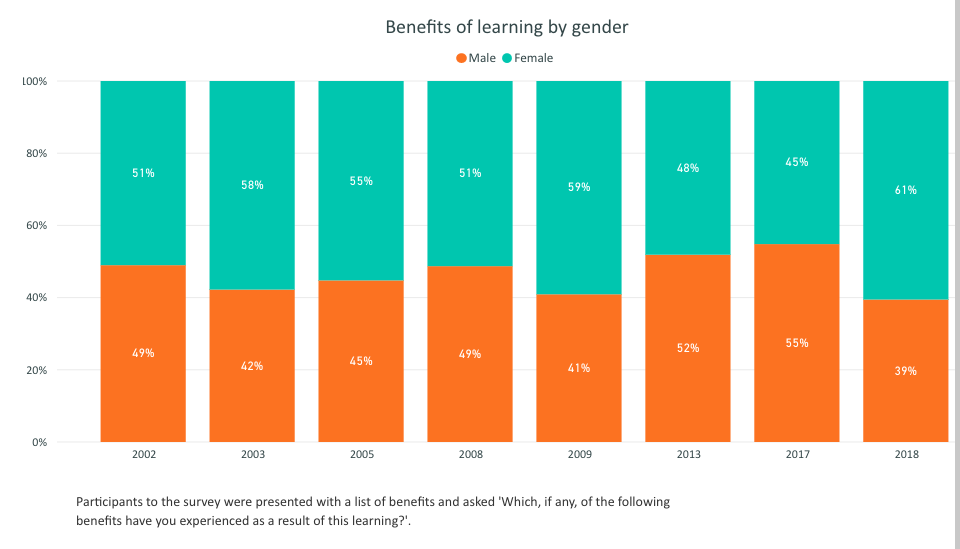Learning and caring
Just a couple of items, before I disappear for a couple of weeks, trekking in the Himalayas (yes, lucky me).
First, here’s a chart from the Learning & Work Institute’s useful data on adult learning. LWI monitors what’s going on every year or two; as well as measuring participation levels by all kinds of factor (age, class etc), they ask about the benefits of learning: to the person’s job; to their health and wellbeing, and to gaining qualifications. The chart below shows the results on this last one: whether the learning that men and women engage in leads to qualifications, or to more learning.

The final column shows a big gap – in fact it’s the biggest gap in all the categories for 2018. In other words, last year women gained more health benefits and more job benefits from their learning than men did (or at least they report more), but the difference is biggest when it comes to gaining qualifications.
This is not that surprising – it’s at the heart of the rationale for the Paula Principle. Yet it’s important confirmatory evidence. Most public attention is directed towards the qualifications people get as a result of their initial education, and a crucial PP argument is that women go on learning throughout their lives at a higher level than men. So this kind of result is important. But in all honesty I must confess to being a little puzzled by the previous two columns, which show a deviation from this pattern. I will be asking the boffins at LWI quite why there has been such a variance.
Switching to caring: I’ve recently completed a report on Learning, Leadership and Demography, for the Further Education Trust for Leadership, looking at the implications for colleges of an ageing population. I’ll give a longer plug for the report when it’s actually out. But a key issue is what colleges might do for carers, for example by way of providing a space for informal exchange on the challenges – and pleasures – of grandparental caring. So it was interesting for me to see an FT piece on a survey from the pension provider Aviva, carried out on 2000 employees.
Mid-life is the fastest growing age group of workers, and caring is a significant pressure for many of them. The survey showed that 20% of mid-life career women expect to leave their jobs in order to care. If we think of the mean age being around 50, this puts major constraints on a career which still has 20 years to run – a huge, and lasting effect.
Men, however, were not far behind, at 17%. I have to say that the smallness of the gap surprised me. It’s always possible that expectations don’t always translate into reality. Or is that too cynical?
